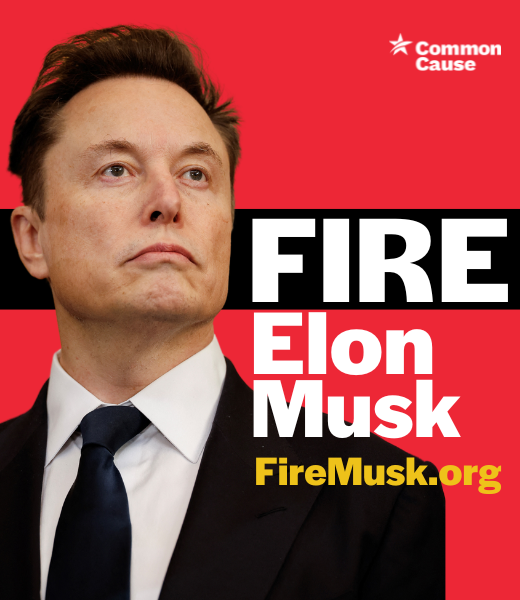Press Release
Whose Government? Whose Voice?
Related Issues
The big money injected into American politics by the Supreme Court’s historic – and fundamentally flawed – decision in Citizens United has blocked action on problems that large majorities of Americans care about most, including stagnant wages, gun control and climate change, Common Cause argues in a report released today.
The study, “Whose Government? Whose Voice?” also describes how multi-million dollar political investments by low-wage employers, the gun lobby, energy companies, Wall Street banks, and major telecommunications firms are blocking popular moves to increase economic opportunity and security, strengthen our democracy, enhance public safety, and ensure the health of our planet.
Release of the 21-page report comes as Common Cause and other government reform groups prepare to mark the fifth anniversary next week of Citizens United,” the 5-4 decision in which the high court’s majority declared that corporations, trade associations, labor unions and other groups have a right to spend as much as they wish to influence elections.
“What we’re seeing is how a decision that purports to advance free speech has made it possible for big corporations and the wealthy to use paid speech to drown out the voices of other Americans and stymie popular will,” said Common Cause President Miles Rapoport.
“Too often today, government seems unable to address the nation’s most pressing problems. And when government tries to act, powerful special interests tap their bank accounts to stop or redirect it,” Rapoport said. The report “argues that we will not begin to solve those problems until we rein in the power of big money in our elections and our government,” he added.
The report explores five key issue areas where unfettered political spending and influence has blocked progress on solutions supported by large, bipartisan majorities of Americans.
- STAGNANT WAGES: More than 70 percent of Americans want the national minimum wage raised from its current level of $7.25 per hour. But minimum wage legislation is frozen in Congress thanks largely to big political spending by low-paying employers. In the 2014 cycle, Walmart alone spent $14.8 million on political contributions and lobbying. The U.S. Chamber of Commerce spent over $35 million in independent expenditures.
- GUN CONTROL: Ninety percent of Americans support background checks on gun purchasers, but legislation to close the “gun show loophole” that lets thousands of buyers evade scrutiny is going nowhere in Congress thanks to the money and muscle of the gun lobby. The National Rifle Association alone spent more than $31.4 million during the 2014 election cycle in a successful drive to stave off reform.
- CLIMATE CHANGE: While the devastation left by repeated floods and droughts across America demonstrates the disastrous impact of climate change, legislation to attack the buildup of carbon in our atmosphere is stalled. The impasse comes as the energy sector reported spending nearly $100 million on the 2014 elections, a total that doesn’t include millions more invested by fossil fuel-backed “dark money” groups that conceal their donors.
- STUDENT DEBT: While 60 percent of Americans support action to lower the interest rate on student loans, a Senate filibuster has blocked legislation offering relief to 25 million student borrowers. Meanwhile, Wall Street banks, many of which profit from student loans, spent more than $100 million on the 2014 election.
- NET NEUTRALITY: More than 80 percent of Americans support regulations that would keep the Internet open to everyone. But the future of net neutrality remains in doubt, as big telecom and the anti-net neutrality lobby spent more than $42.8 million on the 2014 election to elect candidates who would give them free rein to establish fast and slow lanes online.
NOTE TO REPORTERS/EDITORS: You’re invited to a special program on the fifth anniversary of Citizens United being presented in Washington on Wednesday, Jan. 14 by Common Cause, the Brennan Center for Justice, the Center for Media and Democracy, Demos, Justice at Stake, Public Campaign, Public Citizen and U.S. PIRG.
“Five Years After Citizens United: What are the Costs for Democracy?” begins at 9:30 a.m. at NYU’s Abramson Family Auditorium, 1307 L St. NW. The session will feature a discussion of the “Whose Government? Whose Voice” report.
